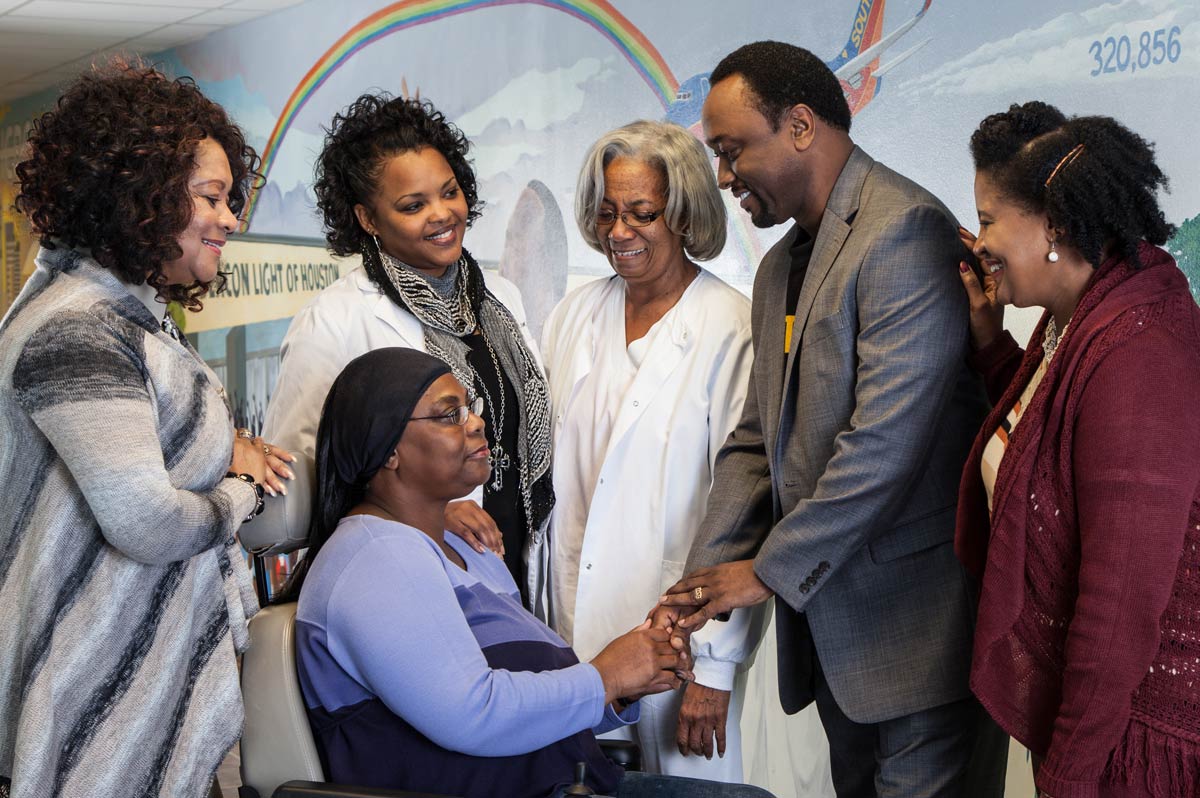BCM Creates Local Church Nurse Movement: Health Outcomes Improve
‘People Are Thirsting To Be Well’
One of the most beneficial health movements in New Orleans is centered in an unlikely place–local churches.
And why not? As the ministry of Jesus demonstrated, healing the physical body is linked to spiritual health. Churches are ideal places to educate people, especially those reluctant to visit a doctor, about ways to stay healthier.
In 1997, these ideas lead Baptist Community Ministries to start its faith-based Congregational Wellness program, one of BCM’s direct services to communities. Unique in the region, this initiative works in churches to improve community health through innovative and spiritually guided approaches. Congregational Wellness has grown and currently has 94 active churches of various denominations, where BCM-trained church nurses and lay health leaders serve as educators, advocates, resource persons and encouragers. Their efforts have cut emergency room visits, reduced the number of medications needed by participants and improved general health outcomes among congregants. Many more churches and communities have been impacted by this initiative.

At far left, BCM Vice President of Congregational Wellness Frances Hawkins and Sharon Burel, far right, at Beacon Light International Baptist Cathedral with Bishop Darryl S. Brister. Thanks to BCM, teams work together to promote better health among congregations. Photo Credit: Jeffery Johnston
Church Nurse Pamela Woodridge, MSN, RN, FCN, spreads healthy energy at Beacon Light International Baptist Cathedral in Lakeview, which joined Congregational Wellness in 2010 as it worked to rebuild from Katrina. Woodridge leads a 30-member health and wellness ministry, coordinated by a cabinet of eight, at Beacon Light, with a growing congregation of more than 1,500. Beacon Light leader Bishop Darryl S. Brister has welcomed the wellness ministry because he says it supports the church’s goals for health improvement of its members.
Woodridge says, “People are thirsting to be well. Our team helps in many different ways. For this congregation I’m an RN, counselor, resource person, mentor, liaison and more. Church members want information. For example, they see others with cancer, and they want to know how to help prevent it. They want to know how to transition to healthy aging.”
Woodridge and other team members are enthusiastic, whether presenting a breast cancer awareness fair, answering health questions from fellow church members, presenting healthy meals or dispensing hugs. The team offers wellness programs monthly. Beacon Light also took part in Congregational Wellness’s STAR (Strategies To Trim and Reduce) program, designed to reduce obesity and lower blood pressure, with great success.
Beacon Light’s wellness activities are replicated throughout other congregations. “We believe God’s blessings of health are for everyone, regardless of race, creed, ethnicity, income or access,” says BCM’s Vice President of Congregational Wellness, Frances Hawkins, MN, RN. “Our goal is to get churches to operate as groups, which spreads the impact of greater wellness throughout the community.
Congregational Wellness’s staff has nurtured the program as it has grown and prospered. Keys to success include the mandatory training for Wellness Ministry Leaders and a “customized health profile report” which determines what interventions each congregation needs most. Churches must meet specific criteria and submit monthly reports to receive BCM’s grants and support.
Approaching its 20th anniversary, Congregational Wellness continues to strive toward a healthier future by reaching more churches and members with these life-changing ministries.
Growth of Congregational Wellness
- Since the inception of the Church Nurse Education Program in 1997 and the development of the Lay Health Advocate Program in 2004, BCM trained 36 registered nurses and 200 health lay leaders.
- To reduce obesity, Congregational Wellness started the STAR (Strategies To Reduce and Trim) project in 2011. This 13-week faith-based initiative has impacted more than 800 persons, who showed a significant 62 percent reduction in weight loss and 43 percent reduction in blood pressure.
How Congregational Wellness Programs Help
- Train registered nurses to become Church Nurses, recognized by the American Nurses Association (ANA) as Faith Community Nurses
- Visiting, praying with sick persons
- CPR, first aid, safety training
- Smoking cessation programs
- Health screenings
- Medical referrals for care
- Life planning classes for adolescents
- Healthy meal planning
- Importance of physical activity
- Medication counseling